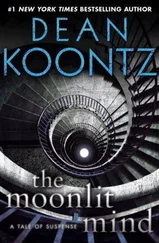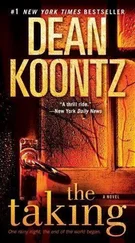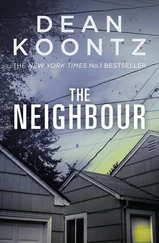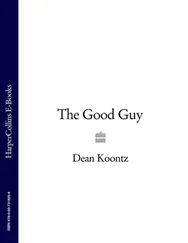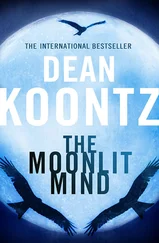He returns his attention to the girl’s face, but the word that would capture the essence of the Look is not purity.
“Time to eat,” says Moongirl.
“In a little while,” the child replies.
“No, baby. Now.”
Harrow is intrigued by this mother-daughter relationship because in it lie the answers with which he might unravel the tightest knots of Moongirl’s madness.
In a tone suggesting the steel sheathed in her soft voice, she calls her daughter by the only name she has ever given her: “Piggy, it’s time to eat.”
Reluctantly the child sets the doll aside, puts down the needle and thread, and pulls the tray in front of her.
For the first time since they entered the room, Moongirl looks at Harrow. In her green gaze is something more intensely felt than mere triumph, something sharper than savage glee, and a far colder satisfaction than Harrow has ever seen in other eyes.
When she is naked and riding him in the windowless room, this is perhaps the very gaze with which she favors him in absolute darkness.
He meets her stare, confident that she will not read in him any attitude that will annoy or offend her.
Virtue and vice are empty words. His well-considered philosophy has led him to deny such words authority over him; her insanity has brought her to the same rejection of all values, for in the chaos of existence, madness is a legitimate path to enlightenment.
Actions are either taken or not taken, consequences incurred or not incurred, and no meaning can be found in any of it.
Moongirl had accused him of pity.
But he does not pity the child. He is merely intrigued by her perseverance, by the devices with which she endures her suffering.
Piggy lifts the top slice of bread off her sandwich and lays it aside. She examines both sides of the lettuce leaf and places it on the bread.
Smiling, Moongirl retrieves from the floor the doll that she displaced when she first sat in the chair beside the desk.
Solemnly, Piggy examines the tomato, the ham, the cheese, and the bottom slice of bread, disassembling her sandwich and rebuilding it upside down.
Sandwiches sometimes contain the unexpected. A rusty nail that gouges the gums. A live worm. A dead cockroach.
The child does not know that Harrow made this ham-and-cheese delight. She must assume that her mother put it together.
Finding nothing unwholesome, Piggy picks up her sandwich in both hands and takes a bite.
Pretending to have no interest in her daughter’s meal, Moongirl examines the beautifully dressed doll that she retrieved from the floor.
In spite of her intellectual limitations, Piggy is, at a modest level, an effective autodidact. She has some talent for art and has taught herself both to draw and to compose visually striking collages from pictures that she clips out of magazines.
Among the crafts she’s taught herself are sewing and embroidery. When they moved into this place, Piggy found an elaborate sewing kit and hundreds of spools of thread left behind by the former owners. By painstaking trial and error, by what Harrow supposes might be called a simpleton’s intuition, she has developed this skill with which she fills the lonely hours.
Now, from the clutter of seamstress tools on the desk, Moongirl selects a small pair of scissors with thin, sharply pointed blades. She uses them to snip at the finished embroidery on the doll’s dress. She works both sides of the cloth, and soon she has a small colorful pile of cut threads that she has pulled loose from the garment.
Piggy wisely makes no comment about this destruction of her work. She gives no indication that she even sees what her mother is doing.
“ Sandwich good?” Moongirl asks.
“Good,” says Piggy.
If Moongirl really intends to set her daughter afire tomorrow night, this is one of the last opportunities she will have to torment the child. She will not waste it.
“Have some potato salad,” she says.
Piggy makes a wordless sound of agreement, but instead of prying the lid off the container, she takes another bite of the sandwich.
Considering all the places Harrow might have been if he had made different choices, he is fortunate to be here, now, for this. He had once thought that only money mattered. But he has since discovered that money matters only because it can buy power, and power matters only if it is exercised with imagination and without conscience.
More than anyone he has ever met, Moongirl understands power, the possibilities of it, the beauty of it, and the art with which it must be employed in order to achieve the most satisfying effects.
She says, “It’s really good potato salad, Piggy.”
Because the world turns and the world changes, the shutter-piercing blade of sunlight should have moved off the cut-glass vase by now, but still it inspires within the bevels a pattern of crimson thorns.
“Piggy?”
For the first time, Harrow notices that the prisms in the vase separate the blue and yellow wavelengths out of the sunshine and translate them to the ceiling. Above the girl, an auroral luminosity shimmers on the plaster.
Moongirl is staring at her daughter with feral intensity. The veins are swollen in her temples.
Tomorrow night, the fire, but now the fireworks.
When he saw the man step out of the Quonset hut, a tiny figure nearly a quarter-mile away, Bobby Onions eased up on the accelerator and coasted forward.
“Who is the guy?” he asked.
Vern said, “He calls himself Eliot Rosewater.”
“You don’t think that’s his name?”
“No.”
“What’s it say on the check?”
“He pays cash.”
Slowly the Land Rover rocked across a series of potholes.
When Bobby consulted the rearview mirror, Vern knew what he would see. They had traveled little more than a quarter of a mile from the county road, but it looked like a long way back.
Directly ahead, the board-flat plain began to rise to foothills about a thousand yards beyond the buildings. To the east, the land dwindled into a haze of dust, and far away to the west, it melted into the declining sun.
Bobby asked, “Why’s the meet have to be in such a godforsaken place?”
“The desert has its own stark beauty,” Vern said.
“What’re you-pimping for the Mojave Chamber of Commerce?”
“Come on, Bobby, pick up some speed. He’s waiting.”
The land was as colorless as concrete, and most of the sun-parched vegetation bristled gray, except for swaths of struggling purple sage.
“Too lonely,” Bobby said.
“Will you relax? He doesn’t want to risk being seen with me. I committed a couple felonies for him today-remember? And since I’d rather not lose my PI license, discretion is fine with me, too.”
In these last hours of the day, the desert light hammered down through the parched air as hard as it had done at noon. The gnarled and stunted mesquite resembled wrought-iron sculpture, and the curved profiles of the Quonsets had edges sharp enough to cut the sky.
“Besides,” Vern said, “he’s not gonna leave his plane untended out here just so we can all meet in a cozy doughnut shop. I’ve dealt with him before. It’s all right.”
“When before?”
“Eight months ago. I searched this architect’s place for him.”
“What architect?”
“That’s already more than you need to know.”
“Back then, the rally was here?”
“The meet was here, yeah.”
“You didn’t use me. Who’d you use for backup?”
Vern sighed. “If you have to know, it was Dirk Cutter.”
“For God’s sake, Vern, he’s brain-dead. You’d use Dirk Cutter before you’d call me?”
Читать дальше
Конец ознакомительного отрывка
Купить книгу
